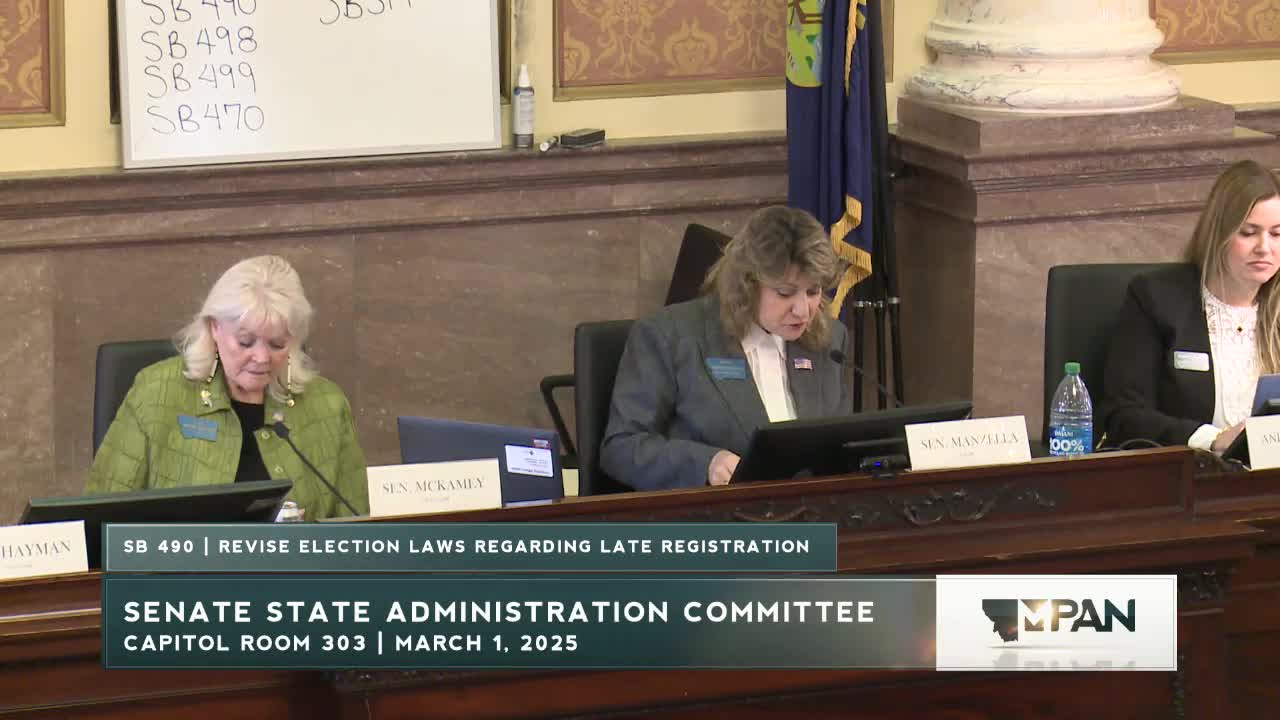Panel hears bill to define tribal consultation and require liaisons; agencies describe varied implementation
Get AI-powered insights, summaries, and transcripts
Subscribe
Summary
Senate Bill 379 would formally define tribal consultation for state agencies, encourage written agency consultation policies and require each agency to designate a tribal liaison to coordinate government‑to‑government engagement.
Helena — Senators and witnesses heard testimony on Senate Bill 379, a proposal to define “tribal consultation” across state executive branch agencies, encourage agencies to designate a tribal liaison and document consultation policies. Sponsor Senator Susan Weber said the bill is intended to create consistent expectations and guidance for state agencies that interact with Montana’s 12 tribal nations.
Proponents included tribal representatives and policy groups. Patrick Yawaki (representing Blackfeet, Fort Belknap and Rocky Boy interests) told the committee tribes seek more regular, respectful, and meaningful government‑to‑government consultation. Imani Kindness Coleman, a Crow citizen testifying for the Montana Budget & Policy Center, said the bill “acknowledges the need for precise administrative policy while recognizing the autonomy of both state agencies and tribal nations” and recommended a do‑pass.
Agency officials appeared as informational witnesses and described different internal approaches. Commissioner Sarah Swanson (Montana Department of Labor & Industry) said her department created an office of tribal liaison within the commissioner’s executive office using existing resources and hired staff with tribal experience; she described that position as actively coordinating readiness and program engagement. Department of Transportation Director Chris Dorrington described district administrators and technical staff who already work with tribes on project‑level coordination and environmental review, and said agency footprints and staffing patterns vary by department.
Committee members asked whether the bill would require additional staff or costs; witnesses said the intent is to designate existing personnel rather than create a new statewide FTE. The bill also contains a reporting/documentation provision and guidance about what constitutes consultation. Supporters said the definition and documentation would reduce confusion, increase consistency and build institutional knowledge.
Ending: Sponsor Weber asked for a do‑pass recommendation. Committee discussion included clarifying how liaisons would work within larger and smaller agencies; no fiscal note was reported during the hearing. The measure received supportive testimony from tribes and policy groups and constructive engagement from agency officials who described existing or developing practices.
